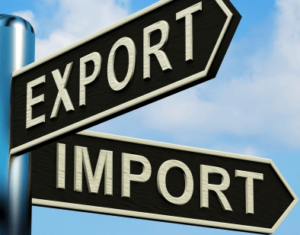WTO makes depressing global trade forecast for 2017
 The World Trade Organisation (WTO), gives a depressing forecast of global trade in 2017. The WTO forecasts that global trade will expand by 2.4 per cent.
The World Trade Organisation (WTO), gives a depressing forecast of global trade in 2017. The WTO forecasts that global trade will expand by 2.4 per cent.
However, it adds, “as deep uncertainty about near-term economic and policy developments raise the forecast risk, this figure is placed within a range of 1.8 per cent to 3.6 per cent. In 2018, the WTO is forecasting trade growth between 2.1 per cent and 4 per cent.”
According to the WTO, the unusually low 1.3 per cent growth in world merchandise trade volume in 2016 was the result of several risk factors converging over the course of the year.
“These weighed on imports of both developed and developing economies, although the latter were more affected,” it said.
It notes that developing economies suffered a sharp three per cent decline in imports in the first quarter, equivalent to an annualized drop of 11.6 per cent. It however, pointed out that growth resumed in the second quarter and losses were recovered by the end of the year.
“Meanwhile developed economies’ imports continued to grow but at a reduced pace. The weakness of imports was reflected on the export side in slow growth of shipments from both developed and developing countries,” the WTO said.
The global organization dealing with the rules of trade bwteen nations says, the unpredictable direction of the global economy in the near term and the lack of clarity about government action on monetary, fiscal and trade policies raise the risk that trade activity will be stifled, adding that a spike in inflation leading to higher interest rates, tighter fiscal policies and the imposition of measures to curtail trade could all undermine higher trade growth over the next two years.
Commenting, the WTO Director-General, Roberto Azevêdo warns; “Weak international trade growth in the last few years largely reflects continuing weakness in the global economy. Trade has the potential to strengthen global growth if the movement of goods and supply of services across borders remains largely unfettered. However, if policymakers attempt to address job losses at home with severe restrictions on imports, trade cannot help boost growth and may even constitute a drag on the recovery.”
He added that “Although trade does cause some economic dislocation in certain communities, its adverse effects should not be overstated – nor should they obscure its benefits in terms of growth, development and job creation. We should see trade as part of the solution to economic difficulties, not part of the problem,” arguing that, “in fact, innovation, automation and new technologies are responsible for roughly 80 per cent of the manufacturing jobs that have been lost and no one questions that technological advances benefit most people most of the time. The answer is therefore to pursue policies that reap the benefits from trade, while also applying horizontal solutions to unemployment which embraces better education and training and social programmes that can quickly help get workers back on their feet and ready to compete for the jobs of the future,” he said.
By Emmanuel K. Dogbevi
Copyright ©2017 by Creative Imaginations Publicity
All rights reserved. This news item or any portion thereof may not be reproduced or used in any manner whatsoever without the express written permission of the publisher except for the use of brief quotations in reviews.
